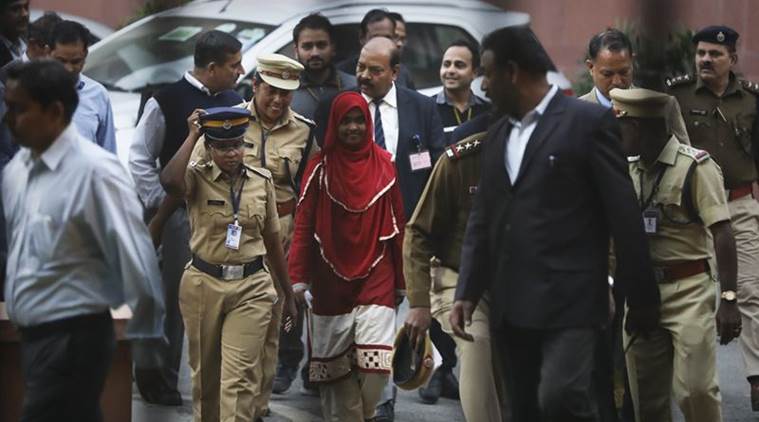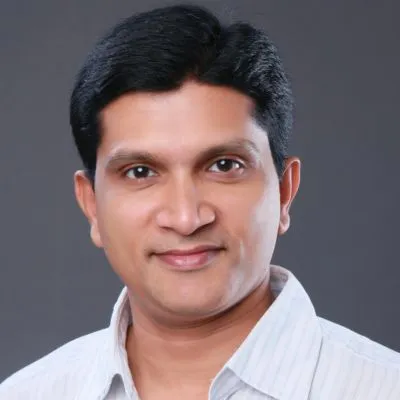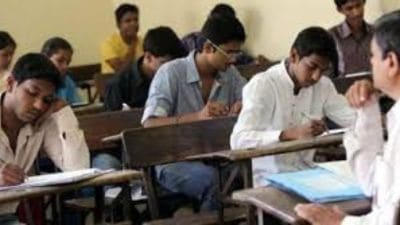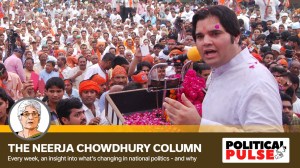- India
- International
Right to marry person of one’s choice is integral to right to life & liberty: SC on Hadiya case
“The choice of a partner whether within or outside marriage lies within the exclusive domain of each individual. Intimacies of marriage lie within a core zone of privacy, which is inviolable," wrote Justice Chandrachud.
 Hadiya outside court. The Supreme Court Monday set aside a 2017 order of the Kerala HC which annulled the marriage of Hadiya and Shefin Jahan. (Express Photo)
Hadiya outside court. The Supreme Court Monday set aside a 2017 order of the Kerala HC which annulled the marriage of Hadiya and Shefin Jahan. (Express Photo)
“The right to marry a person of one’s choice is integral to Article 21 (right to life and liberty) of the Constitution”, the Supreme Court said Monday and set aside a 2017 order of the Kerala High Court which annulled the marriage of Kerala Muslim convert girl Hadiya and Shefin Jahan.
The three-judge bench delivered two separate detailed concurring judgments, one by Chief Justice Dipak Misra and Justice A M Khanwilkar and the other by Justice D Y Chandrachud.
The court also allowed the NIA to continue its investigation in respect of any criminality with the rider that it should not encroach upon their marital status.
Also read | Hadiya case: A timeline
The apex court had set aside the HC order on March 8 itself. However, it gave only a brief order then and said the detailed order would be pronounced later.
“The choice of a partner whether within or outside marriage lies within the exclusive domain of each individual. Intimacies of marriage lie within a core zone of privacy, which is inviolable. The absolute right of an individual to choose a life partner is not in the least affected by matters of faith. The Constitution guarantees to each individual the right freely to practise, profess and propagate religion. Choices of faith and belief as indeed choices in matters of marriage lie within an area where individual autonomy is supreme…Neither the state nor the law can dictate a choice of partners or limit the free ability of every person to decide on these matters. They form the essence of personal liberty under the Constitution”, wrote Justice Chandrachud.

Read | Adults have right to marry anyone, khaps can’t question them: Supreme Court
“Matters of belief and faith, including whether to believe are at the core of constitutional liberty. The Constitution exists for believers as well as for agnostics…Matters of dress and of food, of ideas and ideologies, of love and partnership are within the central aspects of identity….Society has no role to play in determining our choice of partners,” he added.
The HC, said Justice Chandrachud, had entered into prohibited terrain by venturing to decide whether Shefin Jahan was a fit person for Hadiya to marry. “Our choices are respected because they are ours. Social approval for intimate personal decisions is not the basis for recognising them. Indeed, the Constitution protects personal liberty from disapproving audiences”, his judgement underlined.
Justice Chandrachud added that strength of the Constitution lies in its acceptance of the plurality and diversity of the country’s culture. “The cohesion and stability of our society depend on our syncretic culture. The Constitution protects it. Courts are duty bound not to swerve from the path of upholding our pluralism and diversity as a nation”, he added.
The CJI and Justice Khanwilkar in their judgement said the High Court had been “erroneously guided by some kind of social phenomenon that was frescoed before it.”
“The social values and morals have their space but they are not above the constitutionally guaranteed freedom”, the two judges said adding it is a constitutional and a human right. “Deprivation of that freedom which is ingrained in choice on the plea of faith is impermissible. Faith of a person is intrinsic to his/her meaningful existence. To have the freedom of faith is essential to his/her autonomy; and it strengthens the core norms of the Constitution. Choosing a faith is the substratum of individuality and sans it, the right of choice becomes a shadow.”
The court called Hadiya’s father as an “obstinate one who has endeavoured immensely in not allowing his daughter to make her own choice in adhering to a faith and further making Everestine effort to garrotte her desire to live with the man with whom she has entered into wedlock”. The court termed this a “manifestation of the idea of patriarchal autocracy and possibly self-obsession with the feeling that a female is a chattel”.
The High Court, the judges said, erred by reflecting upon the social radicalization and certain other aspects and added this was absolutely unnecessary in a Habeas Corpus petition like the instant one. The bench said that non-acceptance of Hadiya’s choice would mean abdication by the Constitutional Court which is meant to be the protector of fundamental rights. “Such a situation cannot remotely be conceived. The duty of the court is to uphold the right and not to abridge the sphere of the right unless there is a valid authority of law. Sans lawful sanction, the centripodal value of liberty should allow an individual to write his/her script. The individual signature is the insignia of the concept,” it said.
Faulting the HC order as “wholly fallacious”, the bench said that it was for the law-enforcing agency to take action if there was any criminality involved, and the HC could not have justified her “detention” unless she was booked under some law.
On its interaction with her, the judgement said: “…we have interacted with the respondent …and there is nothing to suggest that she suffers from any kind of mental incapacity or vulnerability. She was absolutely categorical in her submissions and unequivocal in the expression of her choice.”
“The social values and morals have their space but they are not above the constitutionally guaranteed freedom”, the two judges said.
Hadiya converted to Islam in January 2016. Months later, she married Jahan, triggering allegations of forced conversion.
Claiming that her daughter had been “brainwashed”, Hadiya’s father K M Ashokan moved the Kerala High Court which annulled the marriage and sent Hadiya to her parents’ custody last May. On appeal by Jahan, the Supreme Court summoned Hadiya, interacted with her in open court and then sent her to continue her studies in a Salem college.
The NIA, meanwhile, has been probing whether Hadiya was forced to convert to Islam. The NIA’s probe, on direction from the Supreme Court, began in August last year. The agency filed a status report of its probe in the court and stated that there was a well-oiled machinery behind the conversion of Hadiya and other girls.
The court said the realisation of a right is more important than the conferment of the right. “It is so because the individualistic faith and expression of choice are fundamental for the fructification of the right. Thus, we would like to call it indispensable preliminary condition,” said the Chief Justice, who wrote the verdict for himself and Justice Khanwilkar.
Apr 24: Latest News
- 01
- 02
- 03
- 04
- 05








































